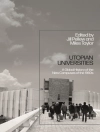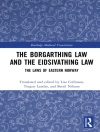Winner of the 2021 France Jones Prize for Welsh History.
As well as outlining the shape of Welsh religious history generally, this volume describes the development of Calvinistic Methodist thought up to and beyond the secession from the Established Church in 1811, and the way in which the Evangelical Revival impacted the Older Dissent to create a vibrant popular Nonconformity. Along with analysing aspects of theology and doctrine, the narrative assesses the contribution of such key personalities as William Williams Pantycelyn, Thomas Charles of Bala and Thomas Jones of Denbigh, and the Nonconformists Titus Lewis, Joseph Harris ‘Gomer’, George Lewis, David Rees and Gwilym Hiraethog. Following the notorious ‘Treachery of the Blue Books’ of 1847 and the Religious Census of 1851, Anglicanism regained ground, and among the themes treated in the latter chapters are the influence of High Church Tractarianism and the Broad Church ‘Lampeter Theology’ in the parishes. The volume concludes by assessing the intellectual culture of evangelicalism personified by Lewis Edwards and Thomas Charles Edwards, and describes the challenges of Darwinism, philosophical Idealism and a more critical attitude to the biblical text.
Tabela de Conteúdo
Introduction
Chapter 1 1760–1790
Chapter 2 1790–1820 (i)
Chapter 3 1790–1820 (ii)
Chapter 4 1820–1859 (i)
Chapter 5 1820–1859 (ii)
Chapter 6 1860–1890
Chapter 7 1890–1900
Theology in Wales: A Conclusion
Bibliography
Index
Sobre o autor
University students of those with an educated interest in social and religious history and in the history of ideas.












